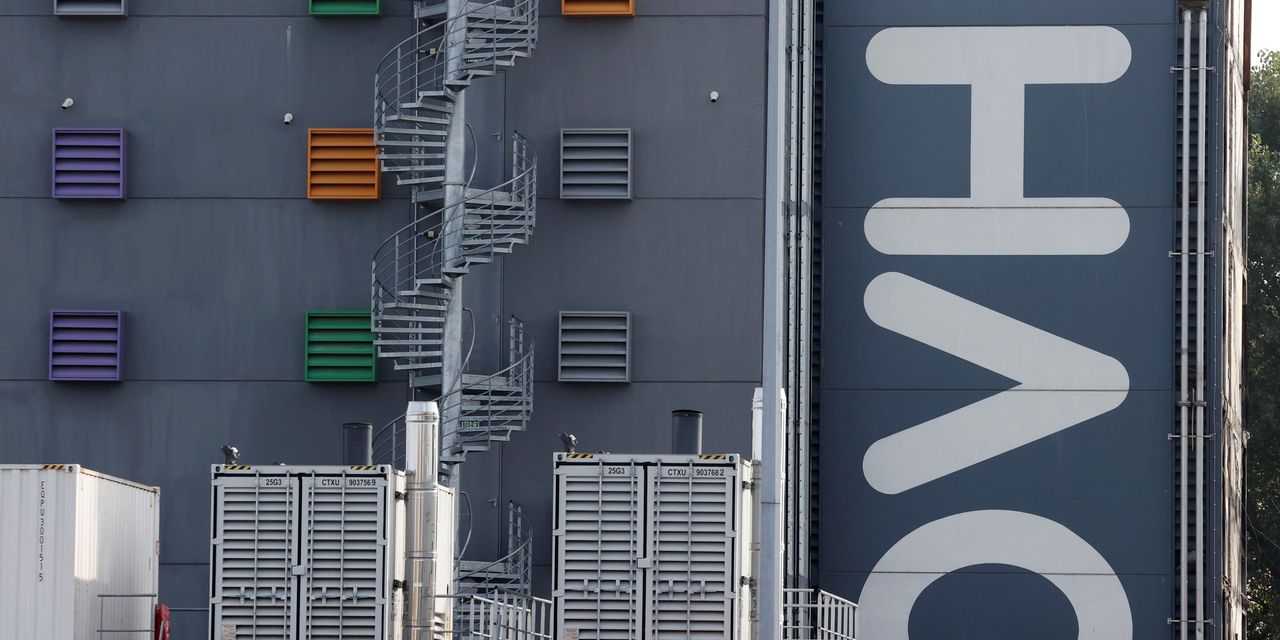
A French cloud-computing company has filed an antitrust complaint in Europe against Microsoft Corp. MSFT -0.51% , adding to recent criticism of the competitive practices at a company that has largely avoided the recent regulatory scrutiny aimed at rival tech giants.
OVHcloud said it filed the complaint with the European Commission, the European Union’s top competition regulator. The complaint focuses on the way Microsoft licenses its products, such as its Office productivity suite, that may make it more expensive to use cloud services that compete with Microsoft’s Azure cloud, people familiar with the complaint said.
The complaint, which OVHcloud filed last summer but which hasn’t previously been reported, also alleges that Microsoft’s software doesn’t work as well on other cloud services, making it harder for them to compete, the people said.
“Through abusing its dominant position, Microsoft undermines fair competition and limits consumer choice in the cloud computing services market,” said a spokeswoman for OVHcloud, whose formal name is OVH Groupe SAS. OVH 0.04%
A Microsoft spokesman wouldn’t immediately confirm whether the company had been notified of the complaint, but said European cloud companies are building successful businesses using Microsoft products.
“Cloud providers enjoy many options to provide cloud services to their customers using Microsoft software, whether purchased by the customer or the partner,” the Microsoft spokesman said in a statement. “We’re continuously evaluating how we can best support partners and make Microsoft software available to customers across all environments, including those of other cloud providers.”
OVHcloud said the complaint was filed jointly with “several companies.” It wouldn’t name the other companies.
As governments around the world have gone after big tech companies, Microsoft has not been at the center of attention. The company has positioned itself as having learned from its own antitrust battles two decades ago when the U.S. Department of Justice and the EU sued the company for its business practices.
Most of the government scrutiny has targeted the other four big U.S. tech giants— Facebook -owner Meta Platforms Inc., Google-parent Alphabet Inc., Apple Inc. and Amazon.com Inc. A 2020 report by the U.S. House Antitrust Subcommittee, for example, aimed its 16-month inquiry at the market power of those other four companies, not Microsoft.
European policy makers and lawmakers have moved recently to more closely regulate the cloud market. Even though Microsoft doesn’t have a dominant cloud market share, there is a concern about the company bundling its historical strength in areas like business applications with its fast-growing cloud business. In the 1990s, Microsoft got in trouble by bundling practices in its operating system.
Two other recent complaints in Europe also alleged that Microsoft is bundling cloud products in an anticompetitive manner. In 2020, San Francisco-based business-messaging app Slack Technologies Inc. complained to the EU about Microsoft’s bundling of its rival Teams workplace-collaboration product with its popular Office software. Last year, German cloud-storage company Nextcloud made a complaint to the EU about Microsoft’s bundling of its OneDrive storage product with its Windows operating system.
After Nextcloud went public with its complaint, the company created a coalition of other European companies and nonprofits calling Microsoft out.
The EU is currently finalizing legislation that would designate several large U.S.-based companies, including Microsoft, as “gatekeepers” that would need to abide by a new set of rules for how they deal with competitors and consumers. A second proposed law seeks to force tech companies to do more to police online content.
The fresh rounds of complaints against Microsoft are coming at a sensitive time for the company. It is seeking approval for one of its largest deals ever, with the $75 billion acquisition of game developer Activision Blizzard Inc., which is also facing scrutiny from regulators.
On Thursday, Microsoft President Brad Smith is scheduled to meet with Margrethe Vestager, the EU’s digital-policy and antitrust czar. The European Commission said the meeting would take place online and cover “issues within the digital portfolio.”
The U.S. Federal Trade Commission will be looking at whether the Activision deal would substantially lessen competition in the gaming market, The Wall Street Journal reported. The FTC is led by Chairwoman Lina Khan, who has taken steps to increase scrutiny of acquisitions.
OVHcloud, which listed in Paris last year, has faced stiff competition from U.S. cloud-service providers.
While the European cloud market is growing, much of that growth has gone to the three largest U.S. cloud vendors, Microsoft, Amazon and Google Cloud. Those three now account for 69% of the European cloud market, according to Synergy Research Group. Deutsche Telekom is the largest European cloud provider with only 2% share of the European market, followed by OVHcloud with a 1% share, said Synergy.
It has been difficult for European cloud companies to compete with the scale and speed of which U.S. cloud companies are expanding, said Synergy chief analyst John Dinsdale, adding that all three are pouring tens of billions into their cloud operations every quarter.
“This is in stark contrast to local European cloud providers,” Mr. Dinsdale said.
Write to Aaron Tilley at [email protected] and Kim Mackrael at [email protected]
Copyright ©2022 Dow Jones & Company, Inc. All Rights Reserved. 87990cbe856818d5eddac44c7b1cdeb8








